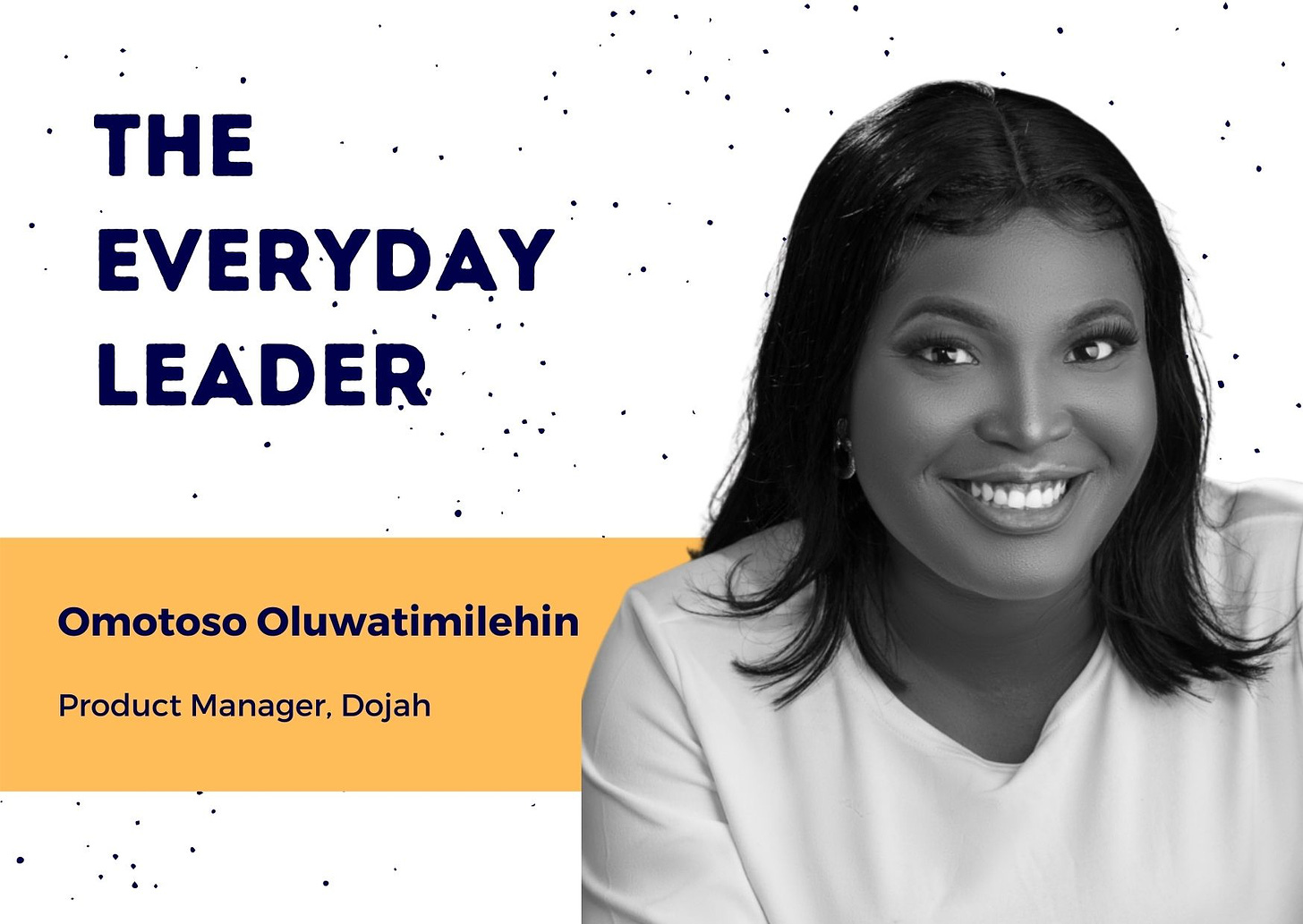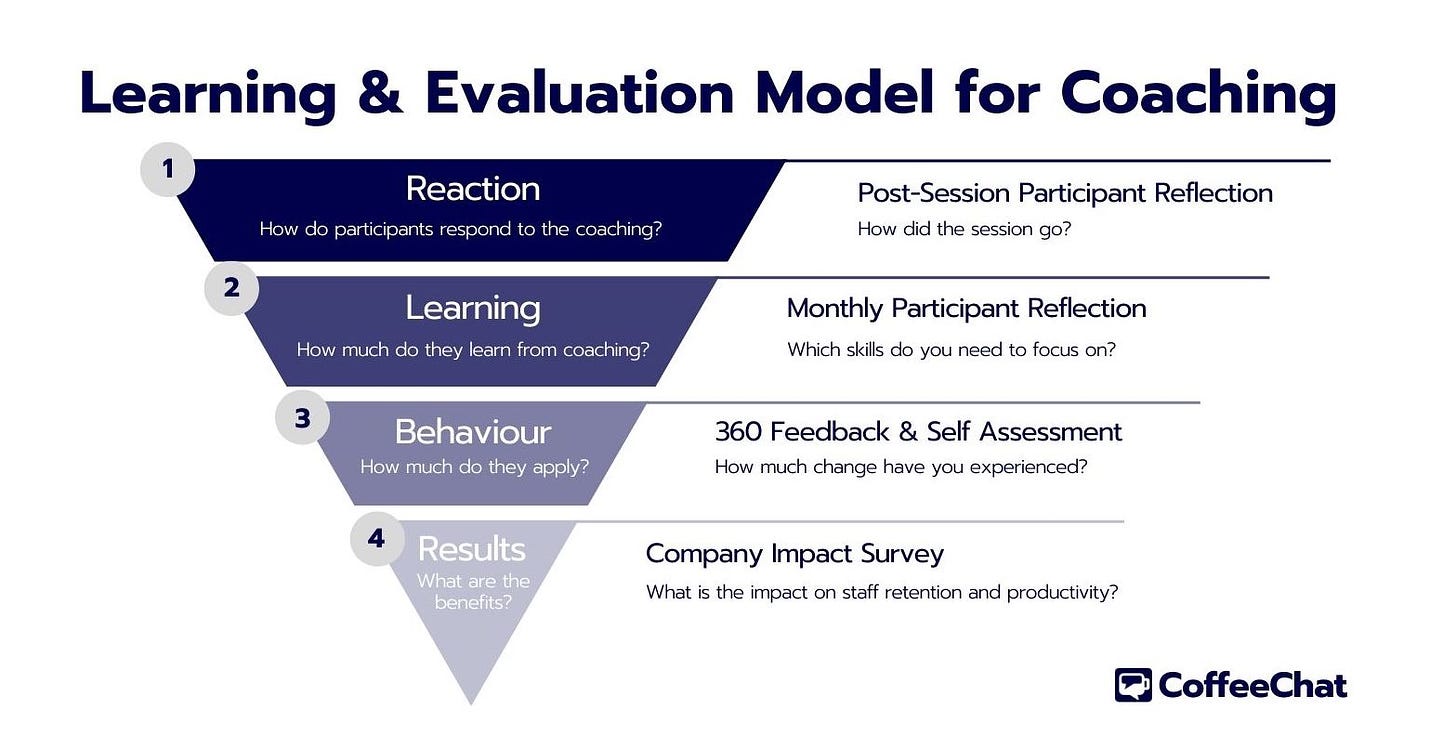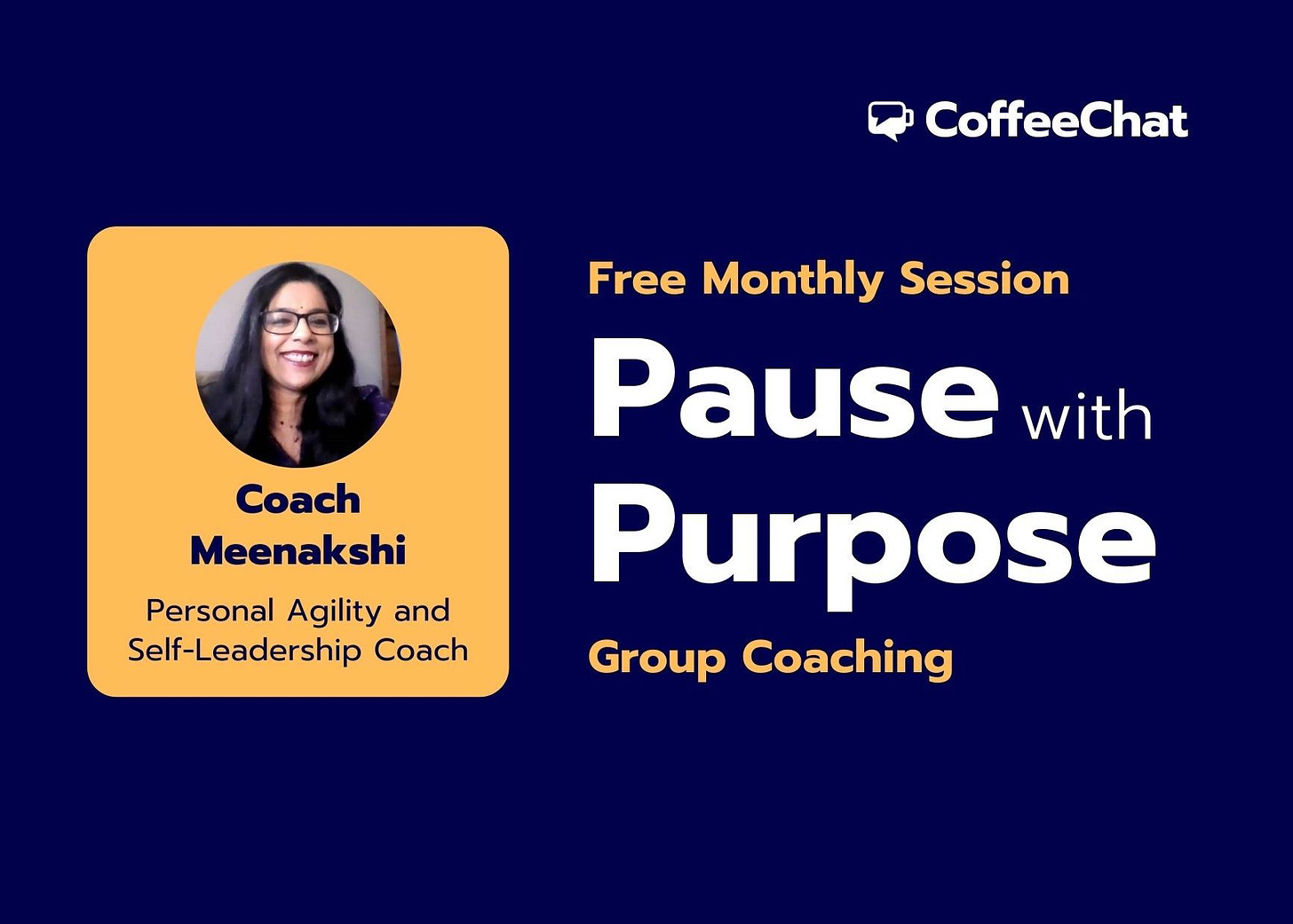Hi everyone, here’s what we have for you this week:
Does your leadership style allow you to build and learn in public? In this week’s episode of The Everyday Leader, Timi Omotoso from Nigeria shares how building in public in her role as a Product Manager at a fintech startups helps establish trust and confidence with early adopters.
How do you measure the impact of coaching? We share the framework we use to capture insights across each stage of learning, from the initial reaction through the end results.
The end of the month is always a good time to “pause with purpose”. Join Meenakshi’s monthly free group coaching session this coming Saturday.
Read on for more details…
On building alongside founders as a Product Manager, using Twitter to learn on the job and conduct market research, and building in public to establish trust and confidence with early adopters
Here are a few highlights from our conversation with Timi:
Product Managers must learn to build a company alongside its founders: Product managers play a pivotal role in bridging gaps between vision and execution, such as creating compromises when there are resource constraints or disagreements in design decisions. In her past two roles, Timi has reported directly to a co-founder. She has learned to identify data to present to founders to help them make decisions. She has also found herself needing to step up and be more proactive when founders need to focus on non-product responsibilities such as fundraising or participating in accelerator programs. In all cases, open communication and a shared respect for each others’ perspectives and expertise has been critical.
Twitter can be used to learn on the job and conduct market research: In her work and career, Timi has used social media to help herself learn on the job and searching for trends across competitors and industry thought leaders. In the context of her current startup Dojah, this means searching Twitter for keywords relevant to fintech APIs. This has been useful alongside other professional development tools she uses, such as CoffeeChat’s Peer Coaching Network, which makes it easy to speak with other professionals in similar roles.
A strategy of building in public can establish trust and confidence with early adopters: Timi shares her observations around the increased use of “building in public” by fintech and web3 entrepreneurs. This typically involves sharing product roadmaps with either customers or the wider public. While there are risks in sharing future plans when it comes to competition, often at early stages there is more to be gained through increased trust and confidence by early adopters who can see whether the direction of the product and company is indeed aligned with their needs. Timi has also found this strategy helpful to solicit critical and supportive feedback from customers and industry experts.
How CoffeeChat Helps Measure the Impact of Coaching
Inspired by the Kirkpatrick framework, CoffeeChat uses a series of touch points throughout the coaching journey to ensure participants and their company see tangible results. When we work with companies to manage coaching programs, we leverage our platform to collect data from participants in order to measure how successful the program is compared with the company’s intended goals. Here is the typical pathway of learning stages:
Level 1 - Reaction: How do participants respond to the coaching?
It’s always valuable to get rapid feedback on how an individual felt about a specific session. This can help identify if there is ongoing satisfaction with the coaching process and to keep the engagement on track. By asking how the session went, we are essentially capturing what is called a Customer Satisfaction Score (CSAT) across many industries and service types. With coaching, this is just the beginning of the measurement process and doesn’t yet capture the true intended outcomes.
Level 2 - Learning: How much do they learn from coaching?
Following multiple sessions, we ask participants to self-identify specific areas of growth they are focusing on during coaching sessions and to what extent they believe there has been progress. These responses help measure the how much is being taken from the sessions and applied in real-life scenarios. Because self-awareness is an important component of coaching, this information is a good short-term indicator of coaching success. It still remains limited to one perspective thus additional information is required in the following levels.
Level 3 - Behavior: How much do they apply?
Following at least 5-6 sessions over 3-6 months, we ask participants to fill a deeper self-assessment about their overall transformation from coaching. We often coordinate with their team to conduct a 360 feedback process to understand the growth being observed and appreciated by those working with the participant. These data points provide a much more robust measurement of the direct impact of coaching on areas such as leadership style, productivity, communication.
Level 4 - Results: What are the benefits?
To make the business case of investing in coaching for staff, it’s also crucial to link coaching outcomes with business metrics. One could argue that it’s difficult to know the outcome of a situation where a manager was not provided coaching, such as a team underperforming due to unresolved team dynamics or poor communication. However, its more powerful to empower Human Resource teams to quantify measurable outcomes such as improvement in staff retention rates, reported team-wide levels of productivity, or other priority goals such as promotion rates. CoffeeChat works with each of its clients to identify their own set of priority business metrics in order to include them in our impact measurement tools for their program.
Upcoming Free Group Session: Pause with Purpose
This coming Saturday, 30 April, Coach Meenakshi will host her free monthly installment of her “Pause with Purpose” series:
Retrospection is a powerful tool that helps us propel towards our goals with renewed understanding, clarity, and conviction. During times that continue to be challenging, let’s use the power of retrospection to stop, breathe, think, and then act on our next steps. This monthly virtual Group Coaching session is a casual and safe space to look back at the month that’s been, and plan for the month ahead. Use this time and space to connect with people globally, network with them, and also find accountability partners to help one another stay on track with your goals.





